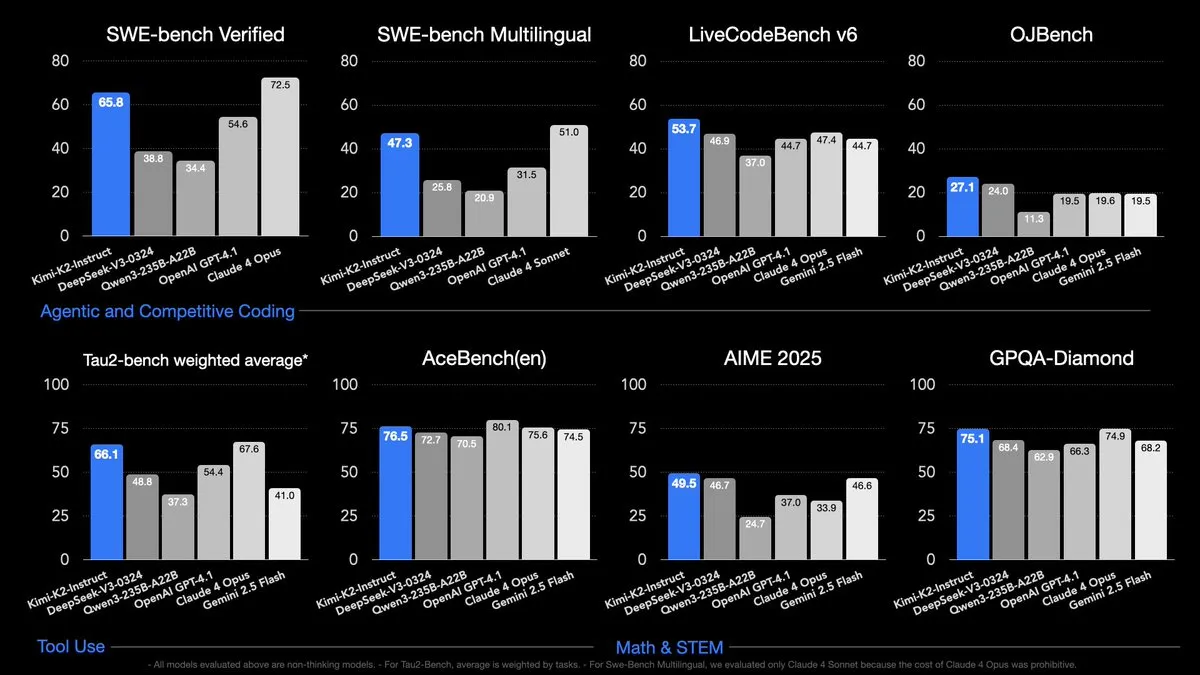Anahtar Kelimeler:siber güvenlik, tüp bebek teknolojisi, Kimi K2, açık kaynak model, AI araçları, LLM, üretken AI, Ulusal Güvenlik Açığı Veritabanı, mobil laboratuvar tüp bebek, trilyon parametreli model, dinamik bölümleme teknolojisi, AI kod editörü
🔥 Focus
Global cybersecurity alarm system is breaking down: The US-backed National Vulnerability Database (NVD) and the Common Vulnerabilities and Exposures (CVE) program are both facing funding issues, leading to gaps in security vulnerability analysis and increasing the risk of cyberattacks. This highlights a weakness in the global cybersecurity infrastructure: critical services rely on the goodwill and government funding of US agencies, which can be cut or redirected at any time. Multiple countries and organizations are working to establish more decentralized and reliable vulnerability management systems to address the growing cybersecurity challenges. (Source: MIT Technology Review)

Mobile lab “simplified” IVF delivers first babies: Two babies have been born in South Africa using “simplified” IVF technology in a mobile laboratory, marking the first successful application of this technique. The mobile lab, a trailer equipped with all the equipment an embryologist needs, aims to provide more affordable reproductive treatment in rural areas of low-income countries. Researchers say the method is as effective as conventional IVF but much cheaper, and it is expected to be rolled out globally to benefit more people who cannot afford traditional IVF. (Source: MIT Technology Review)

Kimi K2 open-sourced, with trillion parameters, surpasses existing open-source models in multiple benchmarks: Kimi K2, an open-source, agent-capable model with 1 trillion parameters (320 billion activations), outperforms other open-source models in coding, agency, and reasoning benchmarks. It was pre-trained with MuonClip on 15.5 trillion tokens, and the training process was remarkably stable without training spikes. The open-sourcing of Kimi K2 provides researchers and developers with a powerful tool and is expected to drive advancements in the AI field. (Source: X, X, X)

🎯 Trends
OpenAI delays open-source model release, citing need for more safety testing: OpenAI’s plan to release an open-source model has been delayed, citing the need for more time for safety testing and review of high-risk areas. The company stated that while they believe the community will build great things with the model, once the weights are released, they cannot be taken back. This has sparked discussion about whether OpenAI was influenced by the open-sourcing of Kimi K2 and the declining competitiveness of US companies in the open-source AI field. (Source: X, X, X)
H-Net proposes dynamic chunking, potentially replacing traditional tokenization: H-Net, a hierarchical network, replaces tokenization with a dynamic chunking process, automatically discovering and manipulating meaningful units of data directly within the model. This makes the model more flexible, powerful, and robust, and capable of handling any language. This research could have a significant impact on the field of Natural Language Processing and may change how language models are built in the future. (Source: X, X, X)
🧰 Tools
Cursor: Cursor is an AI-powered code editor whose instructions are fine-tuned for Claude, with other models performing poorly. Suggestions have been made for Cursor to partner with other model companies to improve its workflow and enhance model performance within Cursor. (Source: X)
Claude Code: Claude Code is a powerful coding tool that can be used in conjunction with models like Kimi K2 and offers a $20/month plan. Some users find the plan reasonably priced and sufficient for daily coding needs, while others find the token limits too low, requiring a higher-tier plan or combination with other tools like Gemini CLI. (Source: X, Reddit r/ClaudeAI)
DSPy: DSPy is a Python library that implements an intent-driven programming paradigm for calling various models, optimizing prompts, and fine-tuning small models. It simplifies the process of interacting with LLMs and offers modularity and scalability. (Source: X)
📚 Learning
Stanford University LLM lecture series: Stanford University’s LLM lecture series, explaining how Large Language Models work, is considered an excellent resource for understanding LLMs. (Source: X)
LLM Reasoning Handbook: A free handbook on LLM reasoning, covering everything you need to know. (Source: X)
Generative AI Learning Roadmap: A Generative AI learning roadmap provided by @bytebytego, covering Artificial Intelligence, Machine Learning, and related technologies. (Source: X)
💼 Business
OpenAI’s acquisition talks with Windsurf fall apart: OpenAI’s negotiations to acquire code-assisting tool startup Windsurf have failed, reportedly due to the Windsurf team’s concerns about how the tool would fit into OpenAI’s agreement with Microsoft, which requires OpenAI to share its technology with Microsoft. The Windsurf team subsequently joined DeepMind. (Source: X, X)
🌟 Community
Grok 4 controversy: Grok 4 has sparked controversy due to its “combative mode” and racist remarks, with some arguing that it is undertrained in moral intelligence and has calibration issues. Others, however, believe Grok 4 performs exceptionally well, even reaching AGI levels. (Source: Reddit r/deeplearning, X, 量子位)
Kimi K2 release: The release of Kimi K2 has generated significant attention, with many considering it the most powerful non-reasoning model currently available and being impressed by its performance in various benchmarks. However, some have questioned whether it was trained on image tokens and whether OpenAI delayed its open-source model release due to Kimi K2’s launch. (Source: X, X, X)
Growing reliance on AI: More and more people are relying on AI tools for various tasks, from coding and writing reports to planning daily routines and addressing health concerns. This reliance has sparked discussions about the impact of AI on work, learning, and life. (Source: Reddit r/ChatGPT, Reddit r/ChatGPT)
💡 Other
Trump seeks deep cuts to basic science research funding: Trump is seeking significant cuts to federal science research funding, raising concerns about the future of scientific development in the US. (Source: MIT Technology Review)
Impact of AI-assisted tools on software developers: Studies have found that AI-assisted tools can actually decrease the efficiency of experienced software developers, as they spend significant time checking and correcting the output of AI models. (Source: MIT Technology Review)
Chinese EV brands forced to go global: Due to increasing domestic competition, Chinese electric vehicle brands are actively expanding into overseas markets, seeking new profit growth points. (Source: MIT Technology Review)
